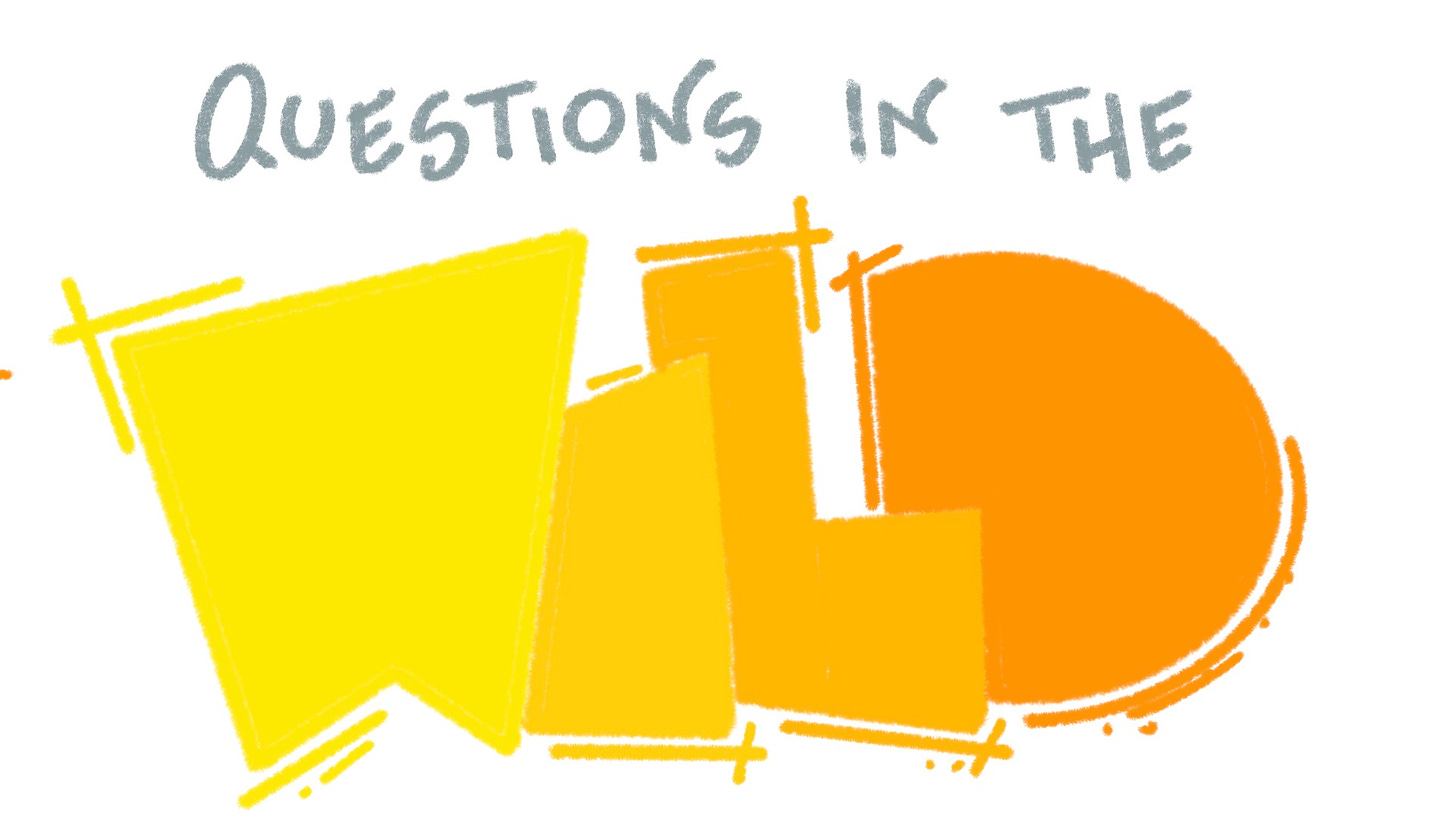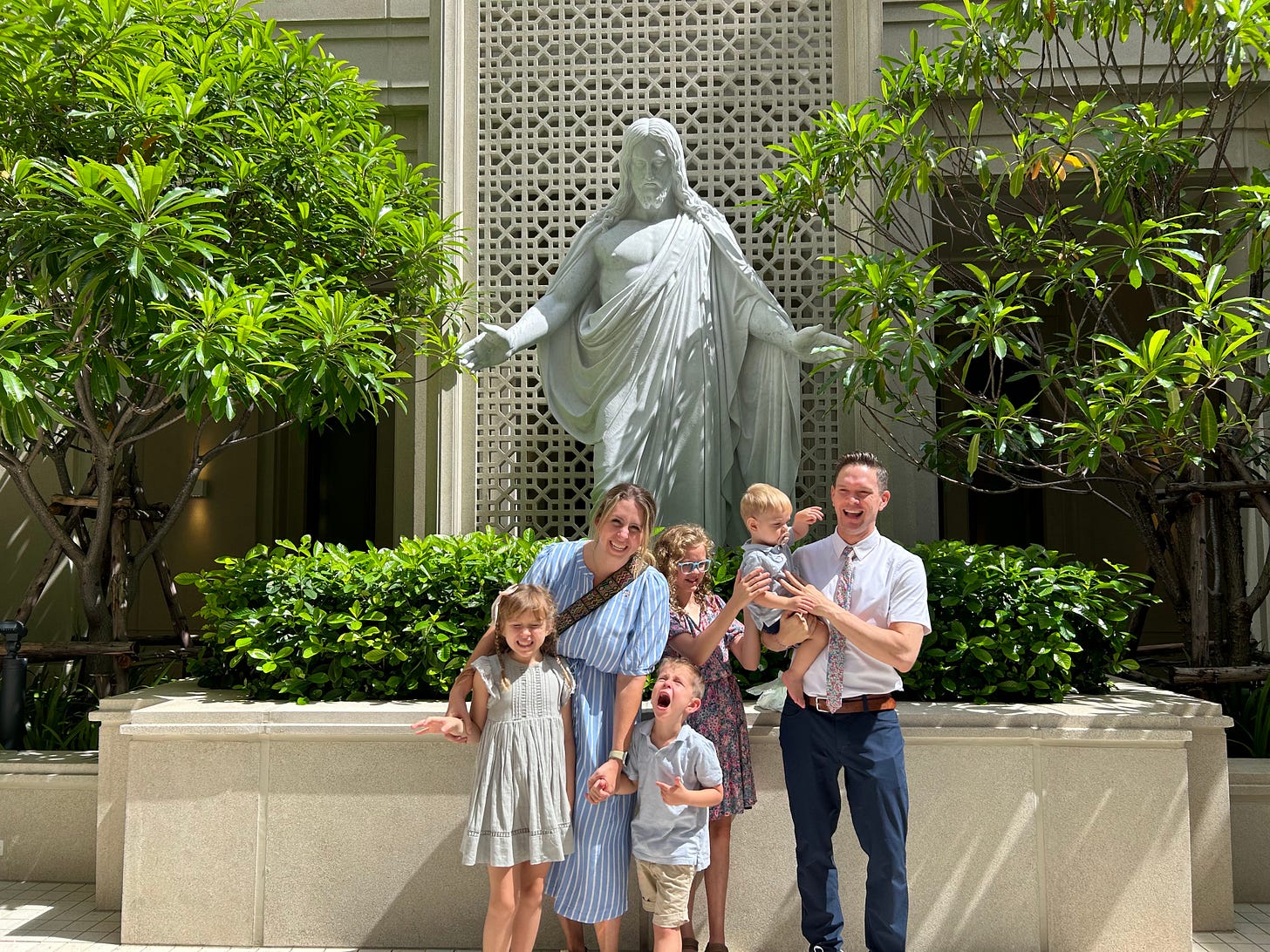“Philosophy is not just about talking or lecturing, or even reading long, dense books. In fact, it is something men and women of action use—and have used throughout history—to solve their problems and achieve their greatest triumphs. Not in the classroom, but on the battlefield, in the Forum, and at court. It was jotted down (and practiced) by slaves, poets, emperors, politicians and soldiers, as well as ordinary folks to help with their own problems and those of their friends, family and followers.”
Ryan Holiday
That’s exactly how I feel about asking questions.
We don’t ponder questions to signal how thoughtful we are or because we want to create a certain appearance. We do this because questions impact every aspect of our lives.
We ask because we want to make better decisions.
We ask because we want to strengthen our relationships.
We ask because want to turn off the defaults and live intentionally.
Each week, I send you a new question. Sometimes these questions are prompted by something I’ve read or an experience I’ve had—other times, I steal them from someone else.
This week, I’m bringing you a handful of the questions that helped me navigate all of the usual ups and downs of another week as a husband, father of four, professional, colleague, friend, teacher, and sibling.
What do I want to remember about this moment?
Last weekend, we spent 36+ hours in Bangkok. We went to catch the final day of the temple open house for our church.
Will screamed through almost the entire tour. Need proof?
That’s just how it goes sometimes when you’re running on little sleep and you’re out of your routine.
The thing is, I get to choose what I remember from that moment and from the moments that followed.
Click here to check out a very quick video recap of the whirlwind trip. What do I remember? The feeling that comes with time well spent ❤️
What are you doing this weekend?
What will you remember about it?
You get to choose.
What part of the story am I missing?
This week, I learned about friends:
in the middle of a significant challenge with a child
dealing with a significant illness
Working through a family crisis
With some significant character flaws I never saw
If you had run into any of these people in a meeting or in the hallways, you would never have known. They smile, listen actively, and in many cases give off a confident and joyful vibe.
You just never know.
This question constantly reminds me that in the hero’s journey for each of these different people, I only see a chapter, a paragraph, or maybe just a sentence of their ongoing novel. There are so many parts of their story I’ll never know.
What part do I need to play?
If every single person we meet is the hero in their own journey, then each of us is a supporting cast member. Sometimes we are Han Solo, sometimes we are R2D2, sometimes we are Darth Vader, and sometimes we are just random extra in the Mos Eisley cantina.
But we all play a role.
And this week, I played different roles for different people based on what they needed.
How did I contribute to this problem?
I ask this question any time a child melts down. Sometimes, I realize I let a child stay up too late, not get enough to eat before leaving the table, or not understand the expectations clearly.
This week, I’ve been thinking about this in relation to my work at school, specifically the work we do as storytellers. Story sets culture. No matter how many nice graphics you have that highlight strategy and aspirations, the stories your organization or family tells is the most accurate indicator of what you value.
What if each time we publish a story higlighting another outstanding achievement we create another data point that says to the “average” student, you’re not enough.
I had this exact conversation with a student who said, “everywhere I look are reminders that I’m not enough.”
What if I’m contributing to this problem?
How can I learn from this?
Someone told me this week that my tendency to see the good in others and in situations can sometimes be a weakness. It can cause me to miss the potential political tripwires, potholes, and subtle snares being laid by those with malicious motives.
Totally true.
I don’t always see things accurately through the lens of the cynic, critic, or troublemaker.
I spent a whole year reading Robert Greene to help with this exact thing and I’m still a work in progress.
What am I optimizing?
We are just starting budget season at work for next academic year. We take a zero-based budget approach which just means we build the budget from the ground up each year to ensure we optimize each dollar.
As we kicked off this year’s process, I asked about doing a ‘zero based calendar’ process. What would it look like if we forced ourselves to optimize every minute the way we optimize every dollar? We spend so much time calculating the monetary budget but who is auditing our time to ensure each minute counts.
Don’t misread that to mean we need to fill every spare moment. I actually think we are creating inefficiencies and unnecessarily spending money each time we add another event in a silo without understanding the larger picture.
What’s in my control?
I ask this question all the time. Every day.
Asking this question helps me feel like I’m almost always in control—not that I control others or the situations—but that I am in control of myself.
I need this when meetings run over, deadlines are missed, last minute requests come racing in, incorrect messaging makes its way into the community, accusations are gently hurled my way, and my body says it’s time to shut down.
I control two things: my attitude and my actions.
I could have kept going but you’ve already been scrolling for a bit 😂
This week, look for the opportunities to pause life by asking the question needed in the moment you’re in. No matter what the answer is, you are better for pausing and reflecting.
Keep Asking,
Kyle





Really great thoughts, Kyle. I'm actually really exploring personally the power of storytelling and communication skills. This is an area I want to grow in so I can be better at capturing small moments and sharing them in ways that help me connect with others at a deeper level. The power of verbal storytelling is something that is love to see taught at school. That would be such a fun way to highlight soft skills that students need.
Having grown up in Salt Lake, storytelling is built into the DNA of the city with constant reminders of the pioneers who came to Utah, but also LDS principles are often taught using stories.
How did the temple look, by the way? The South Jordan Temple near my family's old house is beautiful, especially at night, and overlooks the valley.
Anyway, I'd love to chat more about some of these ideas you discussed. Hope you're having a great weekend!